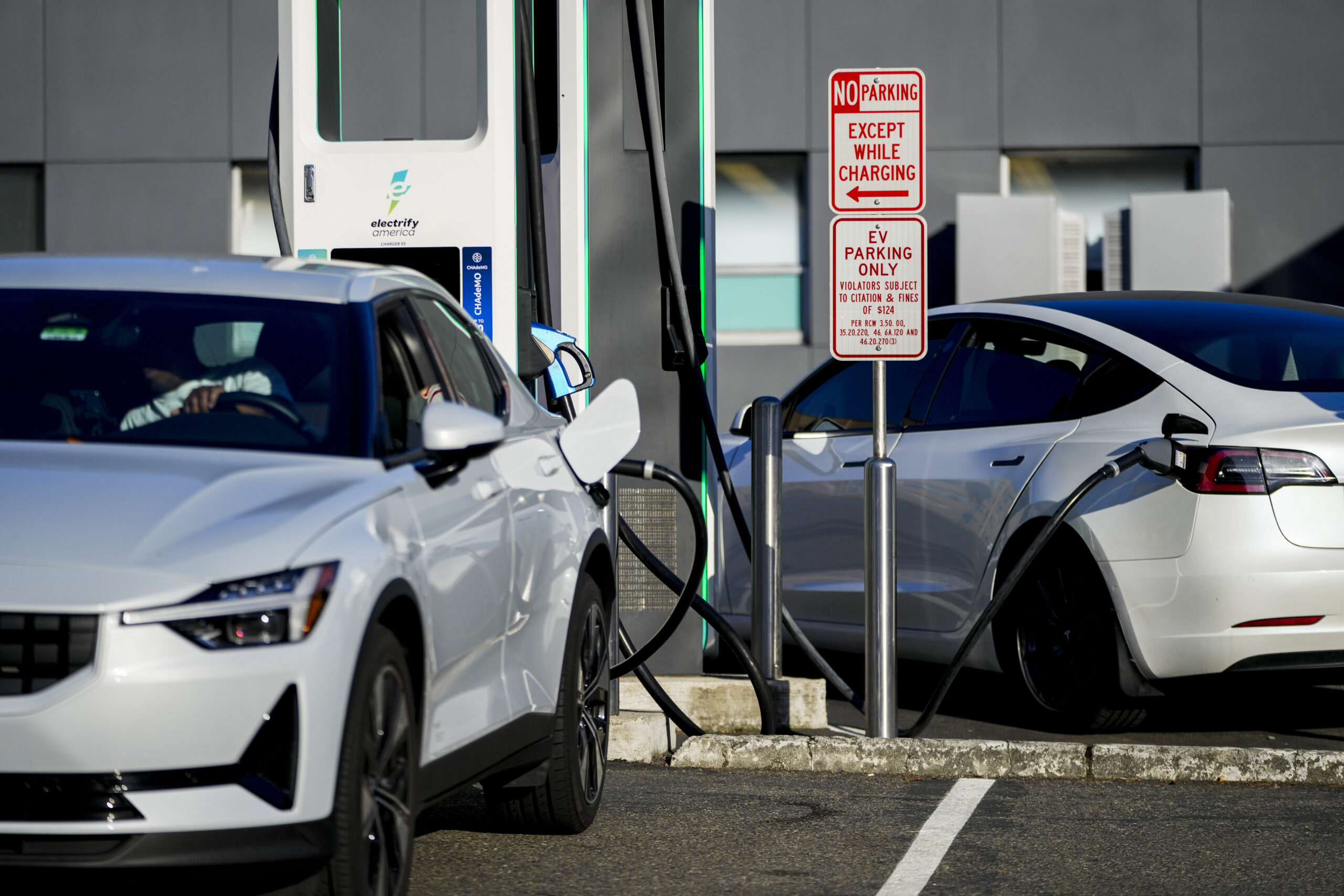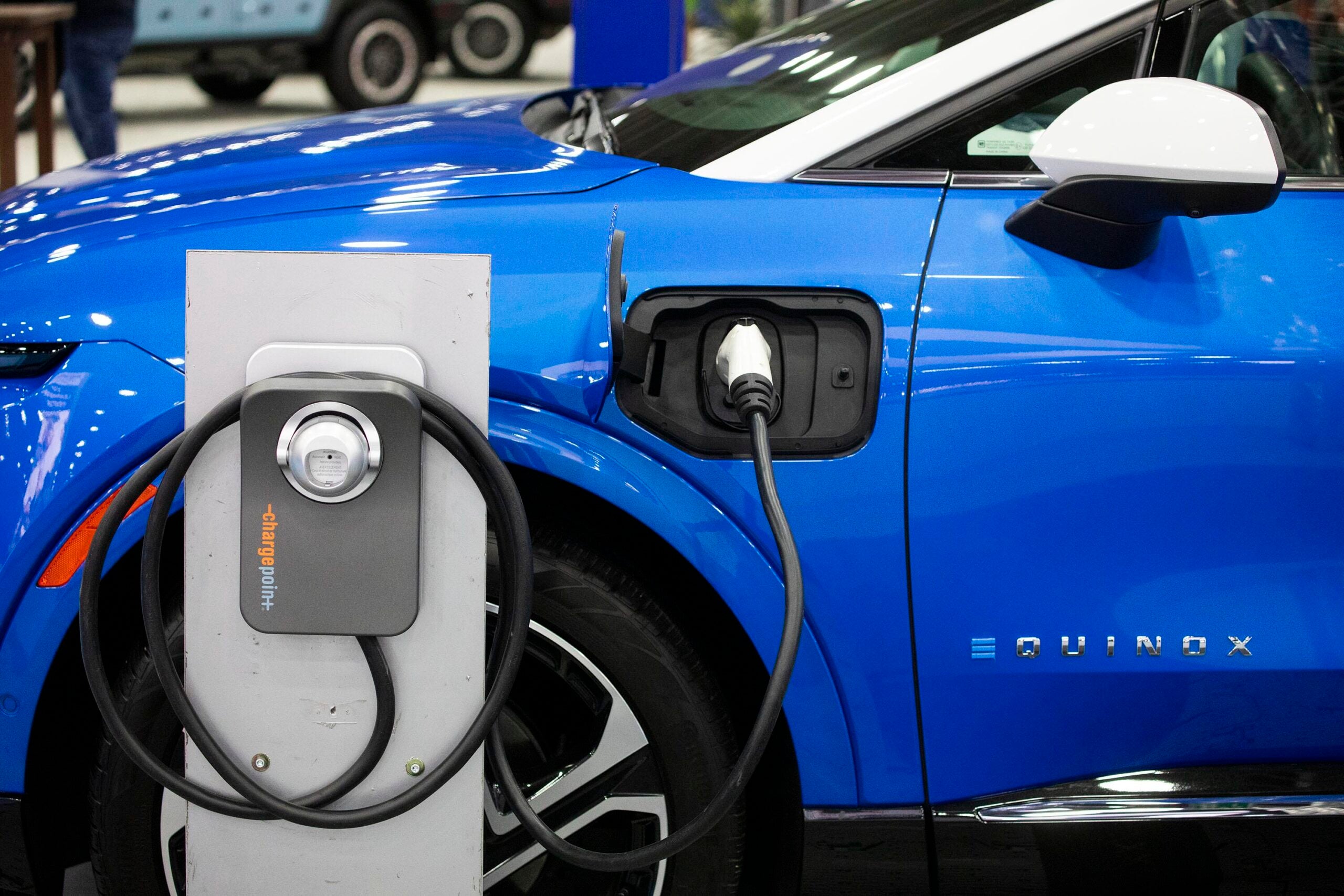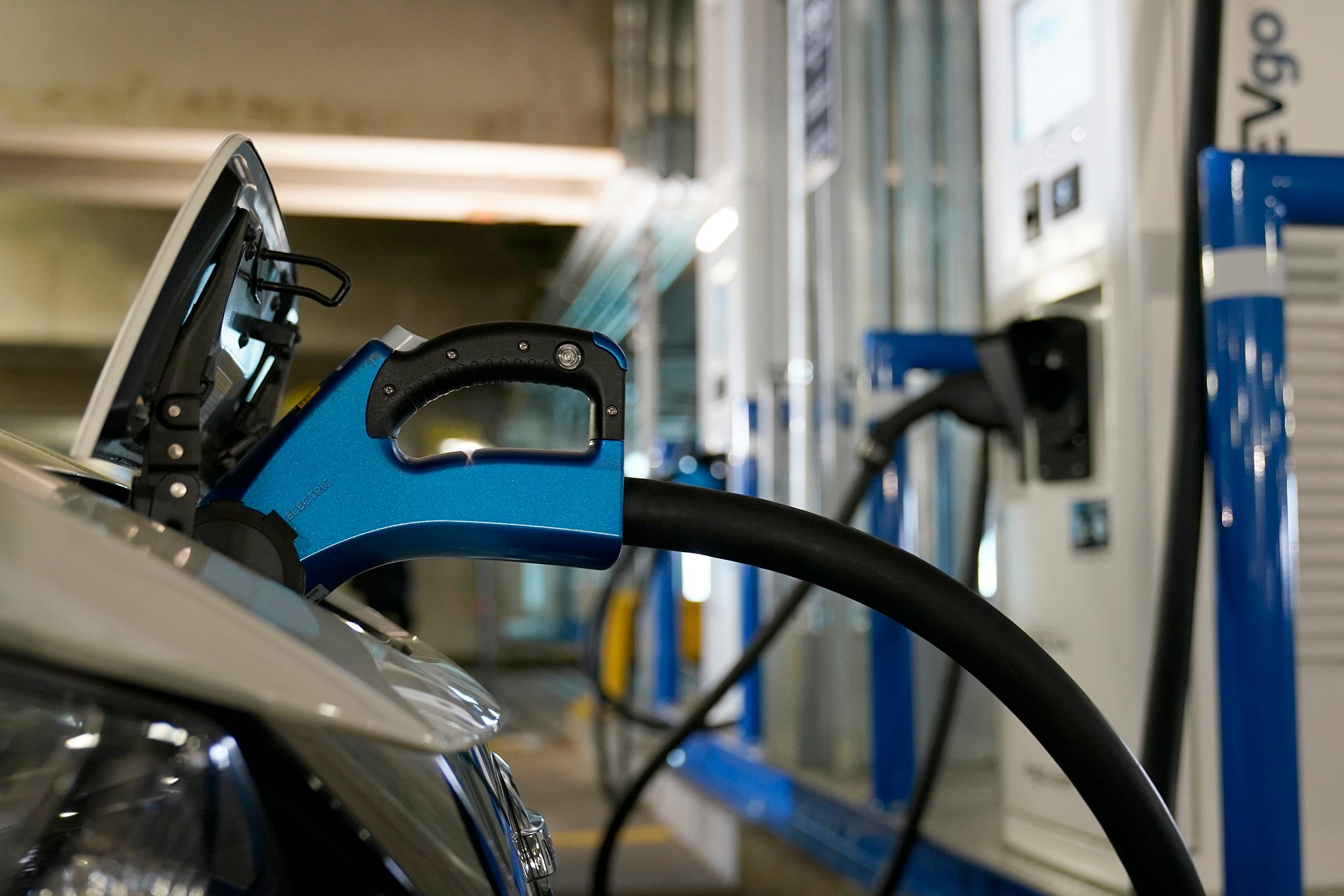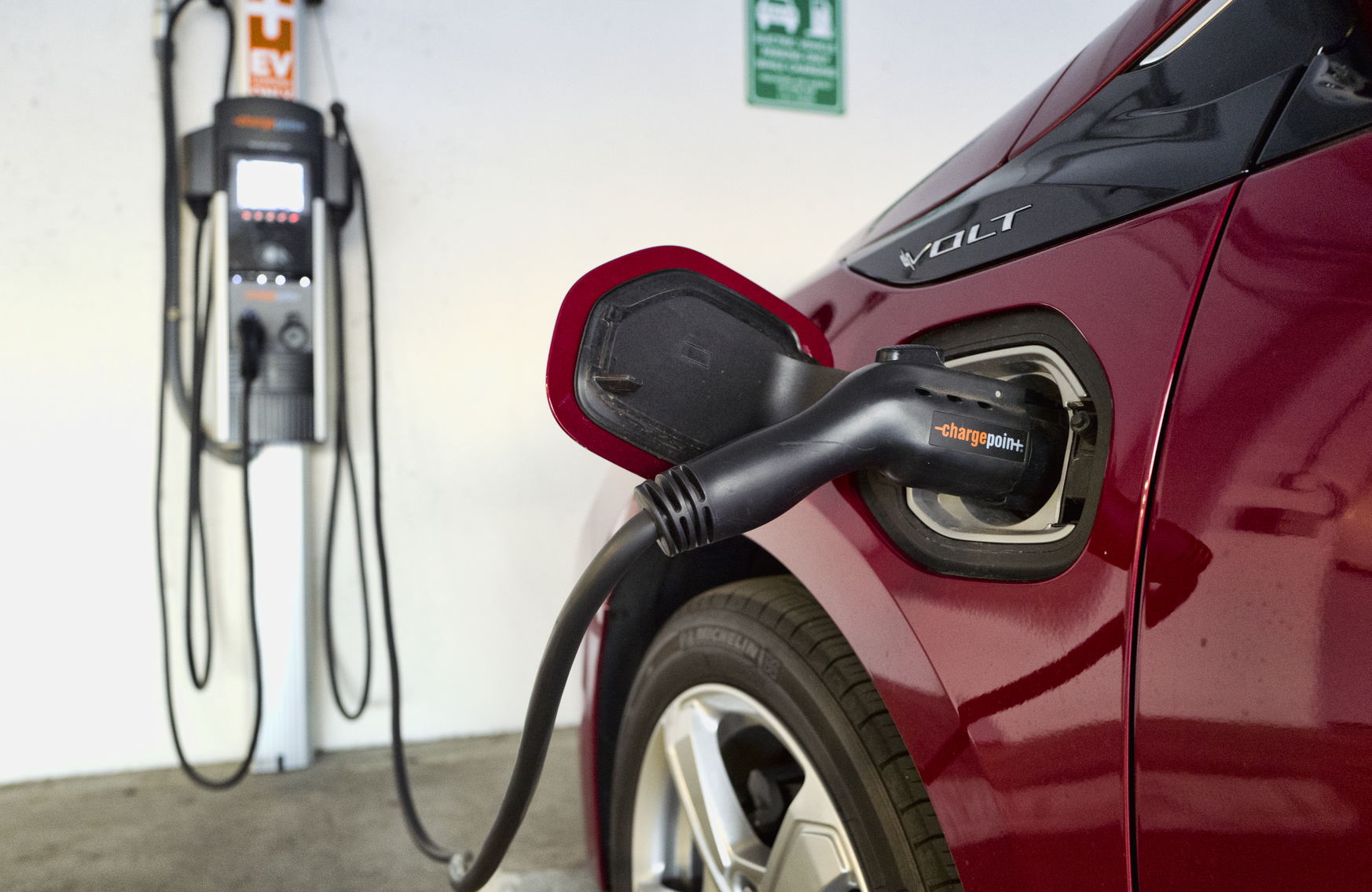Wisconsin is joining a new multistate lawsuit challenging the Trump administration’s decision to freeze funding for electric vehicle charging stations, Gov. Tony Evers announced Thursday.
The state joined 16 others in filing a federal lawsuit to force the administration to release the Congressionally-approved funding.
According to the lawsuit, Wisconsin has been “deprived of access to approximately $62.65 million” of the more than $78 million Wisconsin was awarded by the federal government to deploy a statewide network of EV charging stations.
News with a little more humanity
WPR’s “Wisconsin Today” newsletter keeps you connected to the state you love without feeling overwhelmed. No paywall. No agenda. No corporate filter.
The funding freeze has forced the state to stop work on 15 projects that received federal funds, representing about $7.3 million, court documents stated. Wisconsin also cannot issue any awards as part of a second round of funding it had planned to award this spring, the complaint states.
It comes after the Trump administration in February suspended the National Electric Vehicle Infrastructure, or NEVI, program and suspended state plans approved under the Biden administration until new guidance is issued by the federal government.
Last year, Evers announced the first $23 million from the program would be used to build 53 charging stations at businesses across the state. The state’s first federally-funded charging stations came online in December.
In a statement Thursday, the governor said he has spent months telling the Trump administration and U.S. Transportation Secretary Sean Duffy that he “would not tolerate any delays in investments to help support our state’s infrastructure.”
He said it is “unacceptable” that the state has been forced to pause projects as a result of the administration “obstructing” more than $60 million to support EV charging projects.
“The Trump Administration and Secretary Duffy are singlehandedly trying to block Wisconsin from receiving the investments we were promised,” Evers stated. “It’s bad for the people of Wisconsin, it’s bad for our infrastructure, it’s bad for our economy and it’s illegal.”
In 2022, Wisconsin received federal approval for its plans for the first two years of funding through the NEVI program, the lawsuit states. The state received additional federal approvals for 2024 and 2025 by November 2024.
In each approval letter, the federal government said, “funds are now available to Wisconsin for obligation,” according to the lawsuit.
Even if the federal government issues new final guidance, the lawsuit said, states like Wisconsin, “will shoulder the unnecessary cost and burden” of developing new state plans.
The EV case is one of more than a dozen lawsuits against the Trump administration that Wisconsin Attorney General Josh Kaul has joined. Others include cases challenging the administration’s efforts to cut funding and staff, as well as its efforts to end birthright citizenship.
On Thursday, Kaul told WPR’s “Wisconsin Today” that legal action has come in response to “unprecedented” moves by President Donald Trump and his administration to bypass Congress.
“We are seeing a pretty widespread attack on our very system of government, on the Constitution and on the rule of law,” Kaul said. “I don’t think there’s really any doubt about what’s going on from the Trump administration here. The question for all of us is, how are we going to respond to this?”
Ben Behlke, clean technology manager for the nonprofit RENEW Wisconsin, said the new lawsuit around charging station funding sends a signal to the energy industry that state officials still have interest in building out a statewide network of chargers.
“This is certainly a potential step into getting that and re-unlocking that funding, which would be great,” he said. “It’s also reassuring a lot of people who were prepared to have this funding.”
He said the NEVI program was aimed at building out a network of chargers to support the adoption of electric vehicles, helping reduce reliance on fossil fuels and address climate change.
“The more chargers, the more people get to see it [and] the more it becomes regular, the more people end up buying those vehicles,” he said. “It’s just this domino effect that happens.”
The EV charging program was funded by Congress as part of the Infrastructure Investment and Jobs Act, or the bipartisan infrastructure law. President Donald Trump’s federal budget proposal includes roughly $15 billion in cuts to the Department of Energy from that infrastructure law, according to a letter from the U.S. Office of Management and Budget.
Wisconsin Public Radio, © Copyright 2026, Board of Regents of the University of Wisconsin System and Wisconsin Educational Communications Board.






